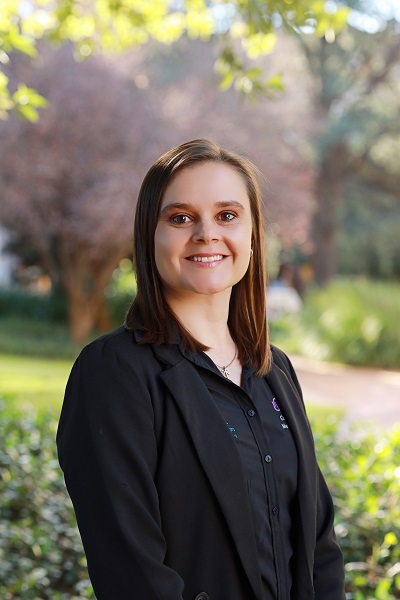They are vital hours and every one of them matters. They are the window that can change the course of a child’s life for the better, and the North-West University (NWU) is ensuring that those first 24 to 72 hours after birth is optimised to safeguard newborn health.
For Dr Ilse du Preez, acting director of the Centre for Human Metabolomics (CHM) at the NWU, newborn screening is not only an essential service, but one very close to her heart, especially in light of the future benefits for a child’s well-being: “As a parent myself, I can't fathom the anguish of not being able to help my child,” she explains.
This is how the process works: “Newborn screening involves routinely testing newborn babies for various genetic metabolic disorders. These disorders, present at birth, can cause harmful substances that are normally broken down by a healthy metabolism, to accumulate in the body. If left untreated, this buildup can lead to severe mental and physical disabilities that worsen over time. The test requires only a few drops of blood, which can be collected from your baby with a simple heel prick performed by a registered phlebotomist – a doctor, nurse or midwife – 24 to 72 hours after birth. In South Africa, we currently screen for 22 conditions. When detected early, these conditions can be treated or managed effectively, resulting in no or minimal impact on the child's health.”
Some of the rare diseases that are tested for include phenylketonuria, cystic fibrosis, congenital hypothyroidism, and galactosaemia.
The CHM at the NWU proudly hosts the Technology Innovation Agency’s (TIA) National Metabolomics Platform (NMP), which is the sole laboratory in South Africa that offers this newborn screening panel test.
“With nearly 40 years of experience in diagnosing metabolic disorders, our highly trained staff treats each blood sample with the same care as if it were that of their own child. The NMP is equipped with world-class analytical technology and is at the forefront of global advancements. We participate in international quality assurance programmes and actively collaborate with rare disease specialists worldwide,” says Du Preez.
Newborn screening is especially important in a South African context, as Du Preez explains: “Although the conditions tested for in our newborn screening programme are rare, any child could be at risk. If a condition is missed initially, symptoms may not appear until months or even years later, and then it may be mistaken for a more common disease. This can lead to misdiagnosis and incorrect treatment. Given the limited number of metabolic specialists in South Africa, it might take years to receive an accurate diagnosis, if ever. Early diagnosis at birth allows for relatively inexpensive treatment, often as simple as a lifelong dietary change. This could mean the difference between a child with no symptoms and one who is mentally and physically disabled, requiring full-time care. Delayed diagnosis not only causes medical and emotional strain but also has significant financial implications for parents and the national healthcare system. In many first-world countries, newborn screening is a routine part of maternity care. In South Africa, only a small number of babies are currently screened. However, even with this limited data, we've observed that the incidence of these defects in the African population differs significantly from that in European populations, highlighting the need for broader screening.”
In cases where a metabolic disorder was not or could not be identified at birth, there is another recourse: the highly regarded Nngwe initiative by DIPLOMICS (a research infrastructure programme
funded by the Department of Science and Technology). Nngwe aims to create a collaborative network among South African laboratories, researchers, and medical practitioners to diagnose patients with rare diseases that have previously remained undiagnosed. The Nngwe network utilizes cutting-edge technologies – including genomics, proteomics, and metabolomics – to collect comprehensive data on these patients. The data are then shared with experts within the network to facilitate accurate diagnoses. Nngwe’s ultimate goal is to leverage all available resources to provide answers to patients and their families.
Du Preez is adamant that parents should not underestimate the potential preventative effects of newborn screening: “Don't leave your child's wellbeing to chance. A simple and affordable test can profoundly change your child's life. While parents routinely check a newborn’s hearing and eyesight and ensure they receive the necessary vaccinations, early diagnosis of a genetic metabolic disorder could have an unparalleled effect on their long-term health. Give your child – and yourself – the peace of mind that comes with knowing.”

Dr Ilse du Preez
